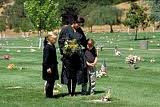This entry deals with the saddest cases that we handle as worker’s compensation attorneys in Arizona, where a worker is killed on the job. An employee who dies as a result of an accident arising out of his employment or an occupational disease may have three different claims:
1. A claim for death compensation benefits for his or her survivors.
2. A claim for burial expenses.
3. A claim for medical expenses incurred before the employee’s death.
In cases for compensation benefits for survivors, surviving spouses, children, parents, or siblings may be eligible to receive a “death compensation benefit” which consists of a percentage of the employee’s average monthly wage at time of death. A surviving spouse is entitled to monthly benefits in an amount equal to 35% of the deceased worker’s average monthly wage. Those benefits, however, end upon the remarriage or death of the surviving spouse. For each surviving child, an additional benefit of 15% of the worker’s average monthly wage is added up to a maximum of 66 2/3% of the employee’s average monthly wage at time of death. Surviving children benefits end at age 18. In order to qualify for surviving spouse benefits, the surviving spouse must have been legally married to the deceased worker at the time of the injury. In cases where a surviving parent, brother, or sister was wholly or partially dependent on the injured worker at the time of death, they may also be entitled to survivor’s benefits in different amounts.
In claims for burial expenses, the employer and carrier usually pay out a lump sum of $5,000.00 to cover any reasonable burial expenses occurring as a result of the on-the-job death.
Because of the complexity of on-the-job death cases and the possibility that a claim against a third-party may result, survivors of a deceased worker should always consult with an experienced worker’s compensation attorney.

